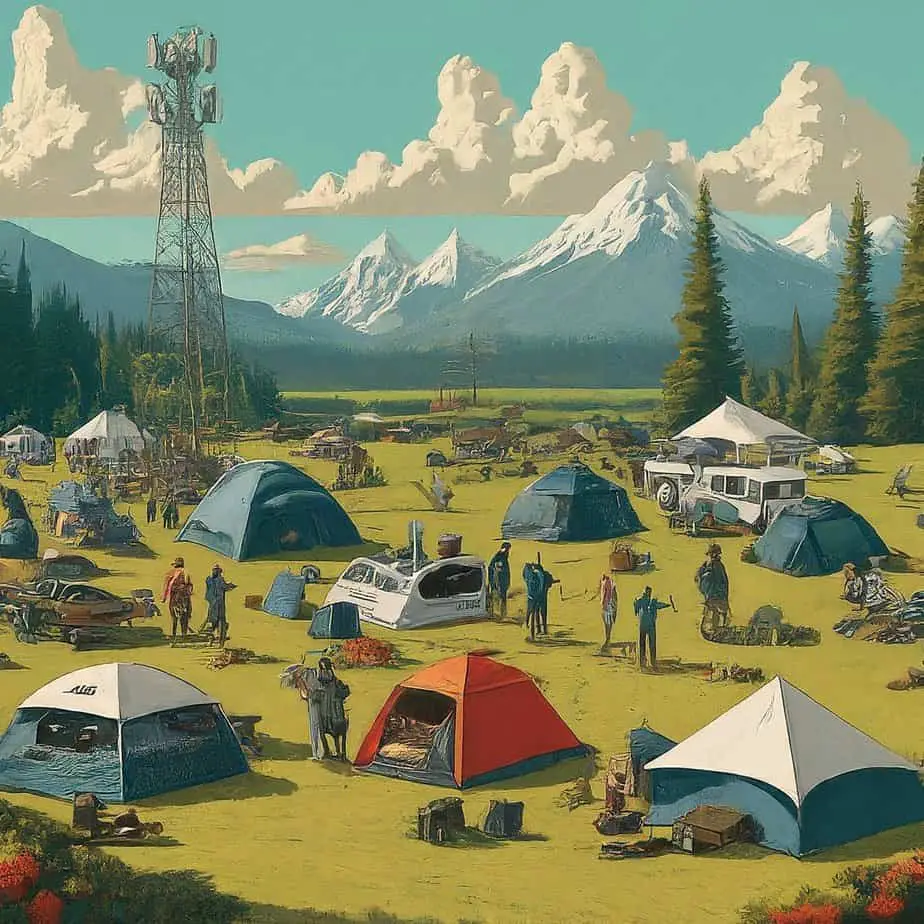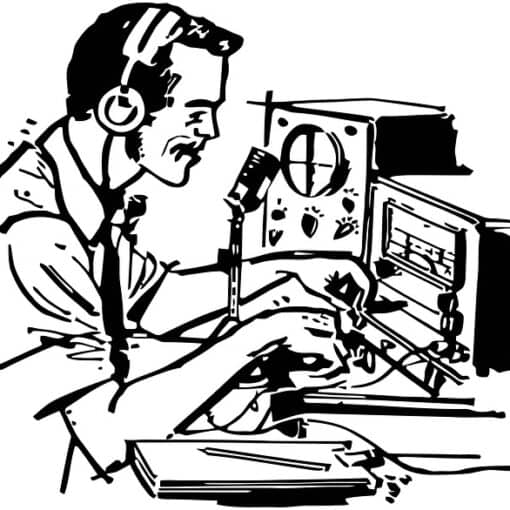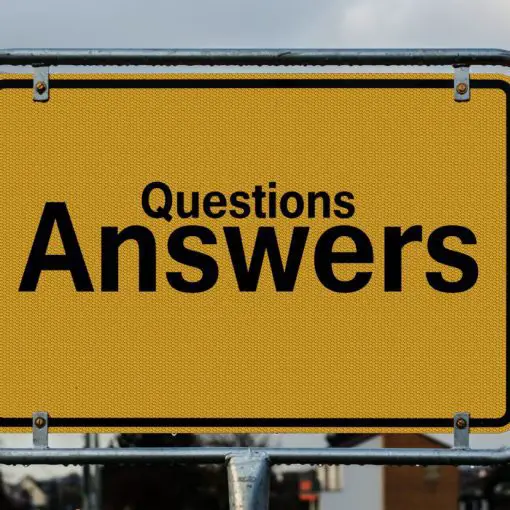Ham radio enthusiasts have a myriad of events and contests to look forward to each year. These gatherings provide opportunities to engage with fellow operators, test skills, and explore new technologies. Whether you’re a seasoned operator or a newcomer, there’s something valuable to gain from attending these events.

Staying up to date with the top ham radio events and contests can enhance your experience and broaden your network. Engaging in these activities not only fuels your passion but also connects you with the vibrant amateur radio community worldwide.
1) ARRL International DX Contest

The ARRL International DX Contest is a cornerstone event for ham radio enthusiasts. This popular contest has a clear objective: to encourage W/VE stations to expand their knowledge of DX propagation on the HF and MF bands. It is a great opportunity for participants to improve their operating skills and station capability.
This contest is held twice a year, with one event focused on CW-only and the other on Phone-only. Participants can use the 160, 80, 40, 20, 15, and 10 meter bands during the contest.
Stations outside of the U.S. and Canada can only contact W/VE stations. This unique rule adds an interesting twist to the contest. Participants must strategize to make as many contacts as possible within the given time frame.
For more information and dates, visit the ARRL Contest Calendar. This resource offers details on all upcoming ARRL contests, including the ARRL International DX Contest.
2) CQ World Wide WPX Contest
The CQ World Wide WPX Contest is one of the major events in ham radio. It takes place every year and is known for its competitive nature and wide participation. The contest features two modes: SSB and CW, giving operators a chance to showcase their skills in different formats.
The SSB portion of the contest is scheduled for March 30-31, 2024. Participants will be able to make contacts with stations from around the world. The challenge is to work as many different callsign prefixes as possible during the contest period.
The CW portion of the contest will occur on May 25-26, 2024. Like the SSB contest, this mode also encourages operators to contact as many unique prefixes as they can. Both segments start at 0000 UTC on Saturday and end at 2359 UTC on Sunday.
It’s important to follow the official rules to ensure fair play. Stations can make a maximum of eight band changes per clock hour. Any form of contact arrangement using non-amateur radio means during the contest is strictly prohibited.
This contest is a great opportunity for ham radio enthusiasts to test their skills and enjoy the thrill of global communication. Whether you participate in SSB, CW, or both, the CQ World Wide WPX Contest stands as a yearly highlight in the ham radio community.
3) IARU HF World Championship
The IARU HF World Championship is one of the top ham radio contests of the year. This event allows amateurs to sharpen their radiocommunication skills and make connections worldwide. Participants operate on the 160, 80, 40, 20, 15, and 10 meter bands.
Held annually, the contest runs for 24 hours non-stop. This year, it starts at 1200 UTC on July 13 and ends at 1159 UTC on July 14. Operators have the chance to contact as many other amateurs as possible, especially those from IARU member society headquarters stations.
The contest is open to both single and multi-operator stations. This makes it easier for participants of all levels to join in the fun. Each connection scored helps in self-training and technical investigation, key goals of the event.
More information about the contest rules and timing can be found on the IARU website. For those looking to join, it’s a chance to demonstrate skills and engage with the global amateur radio community. The event’s format promotes learning and improvement in amateur operating skills.
Don’t miss this opportunity to be part of an exciting and competitive radio contest.
4) RSGB IOTA Contest
The RSGB IOTA Contest is one of the most popular events in the ham radio community. This contest is organized by the Radio Society of Great Britain (RSGB) and focuses on contacts between islands and the rest of the world.
IOTA stands for “Islands on the Air.” Participants aim to make as many contacts as possible with stations located on islands. This annual event draws thousands of radio amateurs globally.
The contest typically occurs on the last full weekend of July. This year’s event will take place from July 27-28, 2024. The contest runs for 24 hours, starting at 12:00 UTC on Saturday and ending at 12:00 UTC on Sunday.
One of the unique aspects of the RSGB IOTA Contest is its encouragement for expeditions to remote islands. This adds an element of adventure, as operators travel to various islands to set up their stations.
For those interested in more details about the contest, rules, and how to participate, visit the RSGB IOTA Contest page. This page provides comprehensive information, including a newcomers’ guide to help first-time participants.
It’s an excellent opportunity for radio amateurs to test their skills and enjoy the thrill of contacting distant islands.
5) CQ World Wide VHF Contest
The CQ World Wide VHF Contest is a major event on the ham radio calendar. It promotes activity on the 6 and 2 meter bands. This contest sees participation from all over the world.
The contest begins at 1800 UTC on Saturday, July 20, 2024, and ends at 2100 UTC on Sunday, July 21, 2024. Operators compete to make the most contacts within this timeframe.
Participation has been strong in recent years. In 2022, a total of 850 logs were received, with nearly 50,000 QSOs reported. This makes it one of the most popular VHF contests.
The main goal is to make as many contacts as possible. Both casual operators and serious competitors can enjoy this event. It’s a great way to test equipment and skills.
For more details and rules, visit the CQ VHF official website.
6) ARRL Field Day
ARRL Field Day is a major event for amateur radio operators. Taking place on June 22 – 23, it draws in over 40,000 participants across North America. Hams set up temporary stations to demonstrate the science and service of amateur radio.
The theme for 2024 is “Be Radio Active.” This year’s event combines a contest, emergency communications practice, and an open house. It aims to take advantage of the peak of Solar Cycle 25.
ARRL Field Day serves as a fun and educational experience for all ages. It promotes public service, emergency preparedness, and community outreach. Participants work together to improve their technical skills and enjoy a friendly competition.
In addition to operating radios, many clubs host public demonstrations. These events help the general public learn about amateur radio and its benefits. Participants can share their experiences on social media using photos and stories.
Severe weather and extreme temperatures are challenges faced by participants, as noted in the 2024 ARRL Field Day Wrap Up. Despite this, it remains a highlight for the ham radio community. This year, there were nearly 2200 log entries received by Wednesday morning after the event.
7) JIDX CW Contest
The JIDX CW Contest is a global amateur radio competition that takes place twice a year. Organized by JIDX Partners, this event has gained a significant following among ham radio enthusiasts.
Held on the third weekend in April, the contest focuses on Morse code communication. Participants from all around the world try to make as many contacts as possible.
There are different categories for operators to join, ensuring everyone has a chance to compete. Whether you’re a seasoned ham or new to contests, there’s a spot for you.
No more paper logs are accepted since the 2023 event. All logs must be submitted online through their Web Log Upload. This makes the process more efficient and eco-friendly.
This event not only tests skills but also offers a way to connect with others globally. High scores and achievements from past contests are often highlighted, adding to the excitement.
The JIDX Contest Official Page provides all the necessary details for those interested in participating. It’s a must-attend for anyone serious about amateur radio contests.
8) Worked All Europe DX Contest
The Worked All Europe DX Contest (WAEDC) is one of the most notable events in ham radio. Many enthusiasts consider it one of the most challenging contests of the year. It features a unique design where only intercontinental QSOs (contacts) between Europe and non-European countries are counted.
The contest has been held for 70 years, showcasing its long-standing tradition and popularity. It includes different modes such as CW, SSB, and RTTY, giving operators varied experiences.
The WAEDC also features a special QTC message exchange, adding to the complexity. Contestants often find it rewarding as they must skillfully manage both operating and copying these messages accurately.
Participation is widespread among top contesters, making it a highly competitive event. This contest represents a true test of operating skills and equipment.
The event typically runs through September and covers various frequency bands. Operators from around the world prepare their stations to participate and achieve high scores. The goal is to make as many QSOs as possible within the set time frame, maximizing points through strategic operations.
The WAEDC continues to be a highly anticipated annual event for ham radio operators.
Understanding Ham Radio Events
Ham radio events are gatherings or contests where amateur radio operators connect, compete, and learn. These occasions are important for both new and experienced operators.
Definition and Importance
Ham radio events are organized activities where enthusiasts use their equipment to communicate over various frequencies. These can be contests, where operators aim to make the most contacts, or special events, where unique goals or themes are highlighted.
Attending these events helps operators improve their skills and knowledge. They also provide a platform for exchanging ideas and equipment tips. By participating, operators can keep up with new technology, regulations, and practices. These events promote community and can be educational and enjoyable.
Brief History
The history of ham radio events dates back to the early 20th century. The first organized activities were primarily informal contacts between hobbyists. As technology advanced, structured contests began to emerge.
One notable early event was the ARRL Field Day, which started in 1933. This event remains popular, focusing on emergency preparedness and making as many contacts as possible. Over the years, different types of contests and events have evolved, catering to various interests within the ham radio community, including digital modes and satellite communications.
The tradition of ham radio events reflects the spirit of innovation and community engagement, which remains central to the hobby today.
How to Prepare for Ham Radio Contests
Preparing for a ham radio contest involves ensuring that you have the right equipment and developing the necessary skills. Getting these aspects right can significantly improve your performance and overall experience.
Required Equipment
You need to make sure you have the correct equipment before the contest starts. First, check your transceiver to ensure it is working properly. It is essential to test all features, including frequency range and sound quality.
Make sure your antenna setup is optimal for the frequencies you will be using. For different contests, you might need antennas that support various bands like 10, 15, 20, 40, 80, and 160 meters. Regular maintenance of your existing antennas is advised.
Have reliable power sources. Ensure you have backup batteries or even a generator in case of power failures. The software for logging contacts and managing your station should be up-to-date. Running a test can ensure the software operates smoothly during the event.
Skill Development
Understanding the basics of propagation is key. Knowing how signals travel at different times and conditions can help you plan your strategy. You can learn more about propagation in the Contest Basics.
Practice operating your equipment under contest conditions. Use past contest recordings to familiarize yourself with the typical flow and pace of a contest. Also, participate in smaller contests to build your skills and confidence.
Clear and efficient communication is a must. Work on your speaking skills and how quickly you can exchange information. This not only speeds up the contact process but reduces misunderstandings. Review HF Contesting Guidelines for common questions and typical scenarios you may encounter.
By focusing on these aspects, you can be well-prepared to compete effectively in ham radio contests.
Networking Opportunities at Events
Attending ham radio events offers unique chances to connect with other enthusiasts and learn from experts. Here are the best ways to make the most of these networking opportunities.
Meeting Like-Minded Enthusiasts
Ham radio events are perfect for meeting others who share the same passion. Whether it’s at the ARRL events or at a local meetup, attendees can bond over shared interests.
Participants can exchange tips, share stories, and learn from each other’s experiences. Building relationships with other enthusiasts can lead to new friendships and collaboration opportunities.
Events often feature social gatherings, providing a relaxed environment where attendees can chat and connect. These interactions can help solidify long-term connections and expand one’s network within the ham radio community.
Workshops and Seminars
Workshops and seminars are another highlight of ham radio events. For example, the annual Contest University provides a platform to learn from seasoned contesters.
These sessions cover various topics, from basic operating techniques to advanced strategies. They offer a hands-on learning experience where participants can ask questions and get real-time feedback.
Attending these educational sessions helps improve one’s skills and knowledge. It also provides opportunities to meet experts and influencers in the field, paving the way for further networking and professional growth.
Frequently Asked Questions
This section addresses common questions about ham radio events and contests. Find out about top competitions, major events in the United States, and where to locate contest calendars and band information.
What are the top amateur radio competitions to take part in this year?
Key competitions this year include the ARRL International DX Contest, CQ World Wide WPX Contest, IARU HF World Championship, RSGB IOTA Contest, and CQ World Wide VHF Contest. These events attract amateur radio enthusiasts from around the globe.
Which ham radio events are the largest in the United States?
In the United States, significant events include the ARRL International DX Contest and the CQ World Wide WPX Contest. These events draw large numbers of participants and offer extensive categories for competition.
How can I find ham radio contests happening this weekend?
To find ham radio contests happening this weekend, check the Calendar of Events on eHam.net. This site lists upcoming activities and contests for amateur radio enthusiasts by date, category, and location.
Where can I find the ARRL Contest calendar for 2024?
The ARRL Contest calendar for 2024 is accessible on the ARRL website. This calendar provides detailed information about dates and rules for upcoming contests held during the year.
On which bands are the major ham radio contests typically held?
Major ham radio contests typically take place on bands ranging from 160 meters to 10 meters. Specific events, like the ARRL International DX Contest, may have more detailed band assignments to ensure varied and widespread participation.
Can you explain what the ARRL Sweepstakes contest entails?
The ARRL Sweepstakes contest involves operators making as many contacts as possible within set time frames while adhering to specific exchange protocols. The contest has two parts: a CW (Morse code) weekend and a Phone (voice) weekend. Participants must accurately exchange a pre-defined set of contact information.





